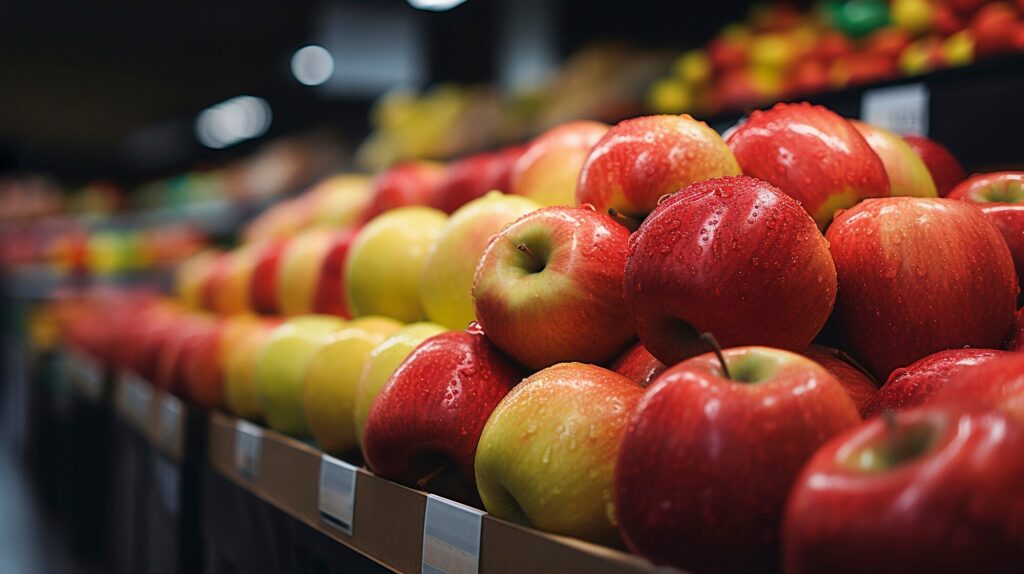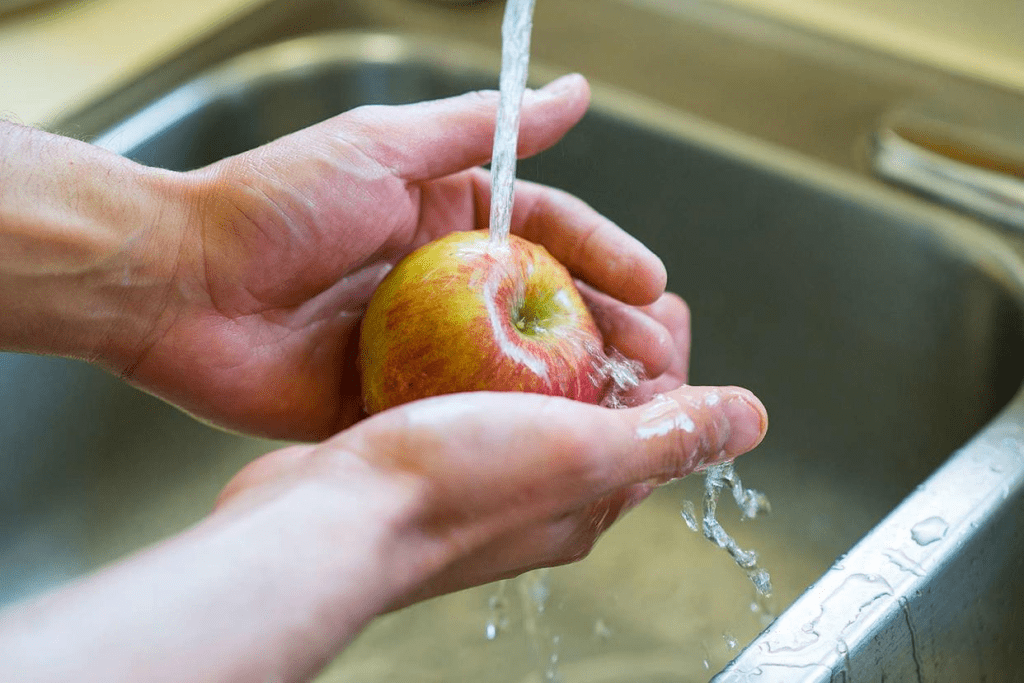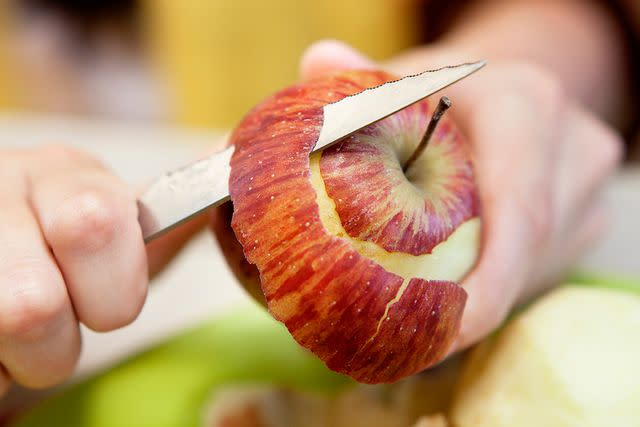In a world where we strive to make healthy choices for ourselves and our loved ones, the recent revelation about the ineffectiveness of fruit washing in removing pesticide residues is a startling wake-up call. A groundbreaking scientific study, published in the prestigious Nano Letters journal of the American Chemical Society, has shed light on a troubling issue that has long been a source of concern for health-conscious consumers.

Source: Freepik
The study, conducted by researchers from China’s Anhui Agricultural University, set out to develop a new method for tracing pesticide contamination in food. But the team’s findings went far beyond their original objective, uncovering a sobering truth about the limitations of conventional fruit-cleaning practices.
Using advanced imaging techniques, the researchers examined the penetration of pesticides into the flesh of an apple. To their surprise, the “imaging results prove that the pesticides penetrate the peel layer into the pulp layer,” as stated in the paper. This startling revelation challenges the long-held belief that simply washing fruit can effectively remove harmful chemical residues.
The study’s authors suggest that peeling the fruit is a more effective way to eliminate pesticide contamination. They found that when the apple peel and a portion of the pulp layer were removed, the pesticide levels decreased significantly. This finding contradicts the common advice to simply wash produce before consumption.
The implications of this study are far-reaching, as it casts doubt on the efficacy of standard food safety practices. “This is more science showing that, yes, there are concerns. Don’t just think that washing is going to help you,” stated Michael Hansen, a senior scientist at Consumer Reports.

The study’s findings come amid a larger debate surrounding the regulation of pesticide use in agriculture. While government agencies like the USDA and FDA maintain that the levels of pesticide residues in food are within safe limits, consumer advocacy groups like Consumer Reports argue that these limits are too high and pose a significant health risk.
The new research highlights the fact that pesticides are not easily washed away, as they can penetrate deep into the fruit’s flesh. This challenges the commonly held belief that a thorough rinsing is sufficient to remove these potentially harmful chemicals.
The study’s authors emphasize that peeling the fruit is a more effective way to minimize pesticide exposure. By removing the peel and a portion of the pulp, consumers can significantly reduce the amount of residual chemicals they ingest.

While peeling may be an effective way to reduce pesticide exposure, it’s important to note that the process can also remove valuable nutrients found in the skin and outer layers of fruits and vegetables. Consumers must weigh the trade-offs between minimizing chemical exposure and maintaining a nutritious diet.
The study’s findings reignite the debate over the appropriateness of current pesticide residue limits set by government agencies. Consumer advocates argue that these limits are too lenient and do not adequately protect public health, while regulatory bodies maintain that the levels are safe for consumption.
This research underscores the need for more comprehensive food safety measures and better consumer education. As the study’s lead author, Dongdong Ye, stated, “Rather than fostering undue apprehension, the research posits that peeling can effectively eliminate nearly all pesticide residues, in contrast with the frequently recommended practice of washing.”

By raising awareness about the limitations of washing and the importance of peeling, this study empowers consumers to make more informed decisions about the food they purchase and consume. Armed with this knowledge, individuals can take proactive steps to minimize their exposure to potentially harmful pesticide residues.
The revelations from this groundbreaking study have the potential to reshape our understanding of food safety and the efficacy of common produce-cleaning practices. The persistence of pesticides in fruits and vegetables, despite thorough washing, is a sobering reminder that we must be vigilant in our efforts to protect ourselves and our loved ones from the potential health risks associated with chemical contamination.
As we navigate the complexities of modern agriculture and the quest for safe, nutritious food, this research serves as a call to action. It highlights the need for continued scientific investigation, stricter regulation, and greater consumer awareness – all with the ultimate goal of ensuring the food on our plates is as pure and uncompromised as possible.


